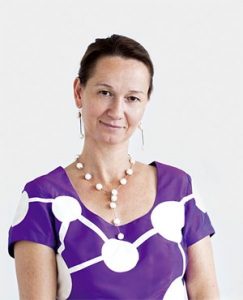 My adventures with Datalog: Walking the thin line between theory and practice
My adventures with Datalog: Walking the thin line between theory and practice
I have worked on various subjects, but ever since my years as PostDoc, I have been fascinated by Datalog, a logical programming language for reasoning and database querying. I will start this talk with a short introduction to Datalog, followed by an overview of some theoretical results on Datalog variants. This will be interleaved with a tale of four Datalog-related companies I co-founded: DLVSystem, Lixto, Wrapidity, and DeepReason.ai. I will also comment on the difficulties an academic has to face when spinning out a start-up, and on the satisfaction you may experience when your results are used in practice.
Biography
Georg Gottlob is a Professor of Computing Science at the Oxford University Computing Laboratory, Oxford, UK, and an Adjunct Professor of Computer Science at the Vienna University of Technology, Austria (TU Wien), where he is a member of the Information Systems Institute. His research interests are database theory (in particular, query languages), Web information processing, constraint satisfaction problems, nonmonotonic reasoning, finite model theory, and computational complexity. On the more applied side, he supervises a number of industry projects dealing with expert systems and with multimedia information systems. From 1989 to 1996 he directed the industry-funded Christian Doppler Laboratory for Expert Systems. He is a co-founder of Lixto Corporation.
Gottlob got his Engineer and Ph.D. degrees in Computer Science from TU Vienna, Austria in 1979 and 1981, respectively. Before he moved to Oxford in 2006, he was a Full Professor of Computer Science at TU (since 1988). Before that, he was affiliated with the Italian National Research Council in Genoa, Italy, and with the Politecnico di Milano, Italy. During the spring semester 1999 he was invited McKay Professor at UC Berkeley.
Georg Gottlob was an invited speaker at many international conferences. He has received the Wittgenstein Award from the Austrian National Science Fund, is an ECCAI Fellow, and a member of the Austrian Academy of Sciences, the German Academy of Sciences Leopoldina, and the European Academy of Sciences Academia Europaea in London. He chaired the Program Committees of IJCAI 2003 and ACM PODS 2000, was the Editor in Chief of the Journal Artificial Intelligence Communications, and is currently a member of the editorial boards of several other journals. Gottlob is an ISI highly cited researcher.
Georg Gottlob has recently helped to build up the Information Systems Group at Oxford University’s Computing Laboratory. He is, moreover, a founding member of the recently established Oxford-Man Institute of Quantitative Finance.
Personal Site
 Democratizing Data Science – the human in the loop
Democratizing Data Science – the human in the loop
 My adventures with Datalog: Walking the thin line between theory and practice
My adventures with Datalog: Walking the thin line between theory and practice Creating Data-driven Business Models
Creating Data-driven Business Models Measuring the Business Value of Recommender Systems
Measuring the Business Value of Recommender Systems Reflections on Teaching Computing
Reflections on Teaching Computing Some Biases in Data Science
Some Biases in Data Science Using Process Mining to Study Business Phenomena
Using Process Mining to Study Business Phenomena Biography
Biography